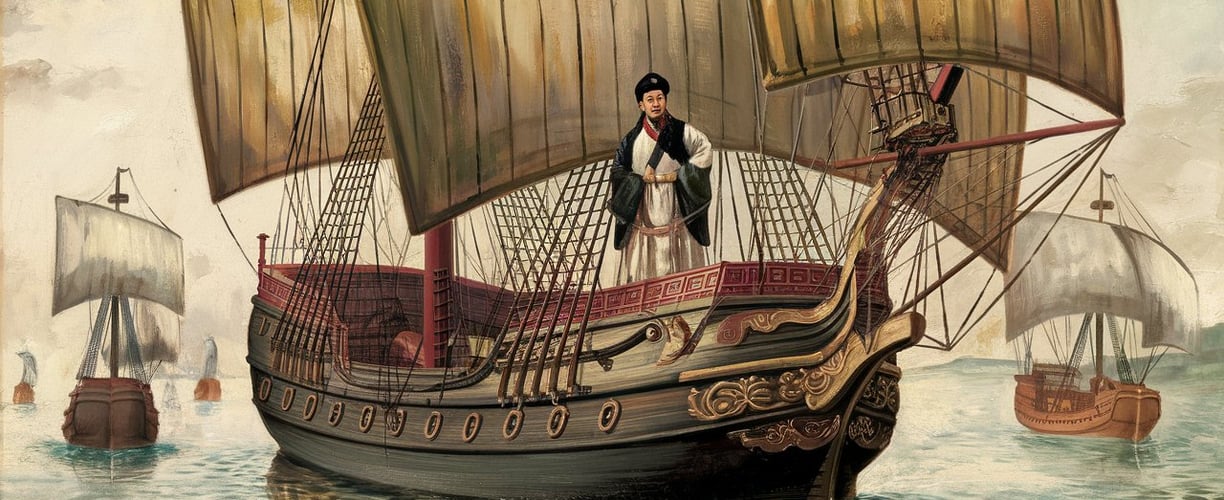The Mysterious Voyages of Zheng He: China's Forgotten Maritime Pioneer
8/26/20242 min read


My post content
Long before European explorers set sail to chart the unknown, a Chinese admiral named Zheng He led a series of extraordinary voyages that reached the shores of Africa, the Arabian Peninsula, and Southeast Asia. Between 1405 and 1433, Zheng He commanded seven expeditions, comprising some of the largest fleets the world had ever seen. Despite his monumental achievements, Zheng He’s voyages are often overshadowed in the annals of history, largely forgotten outside of China.
Early Life and Rise to Prominence
Zheng He, born Ma He in 1371 in Yunnan Province, was captured by the Ming Dynasty’s forces as a young boy and later castrated to serve in the imperial court. Despite this traumatic start, Zheng He rose to become a trusted confidant of the Yongle Emperor, who recognized his intelligence and abilities. Zheng He’s unique background, combining both Hui (Muslim Chinese) heritage and imperial loyalty, positioned him as an ideal leader for the ambitious maritime projects of the Ming Dynasty.
The Great Voyages
Zheng He’s first voyage set sail in 1405 with a fleet of over 300 ships and 28,000 men, a scale unprecedented in maritime history. These treasure voyages were not just about exploration but were also diplomatic missions aimed at establishing Chinese presence and influence across the Indian Ocean. They brought back envoys from various kingdoms to pay tribute to the Ming court, fostering trade relations and cultural exchange.
The voyages reached as far as the east coast of Africa, visiting cities like Mogadishu and Malindi. They also ventured into the Persian Gulf and the Red Sea, and throughout Southeast Asia. The treasure fleets, with their massive "treasure ships," or "baochuan," symbolized China’s naval superiority and its desire to project power and prestige across the known world.
The End of an Era
Despite their success, Zheng He’s voyages came to an abrupt end in 1433. A combination of factors, including changes in court politics, financial strain, and a shift in focus towards defending against Mongol invasions, led to the cessation of the treasure voyages. The Ming government’s later adoption of a more isolationist policy, coupled with a loss of interest in maritime exploration, meant that Zheng He’s achievements were gradually forgotten, both within and outside China.
Rediscovering Zheng He’s Legacy
Zheng He’s voyages remain a remarkable chapter in maritime history, showcasing the advanced state of Chinese navigation, shipbuilding, and international diplomacy in the 15th century. His expeditions demonstrated that China was a major player in global trade and geopolitics long before the rise of European colonial empires.
Today, Zheng He is celebrated as a symbol of China’s rich maritime heritage and its historical role in global exploration. His legacy challenges the Eurocentric narratives that often dominate discussions of exploration and discovery, reminding us that the seas were once traversed by many cultures, each contributing to our shared global history.
Explore
Uncovering hidden stories from the past.
Connect
Discover
© 2024. All rights reserved. The Unseen History logo is registered trademark.
